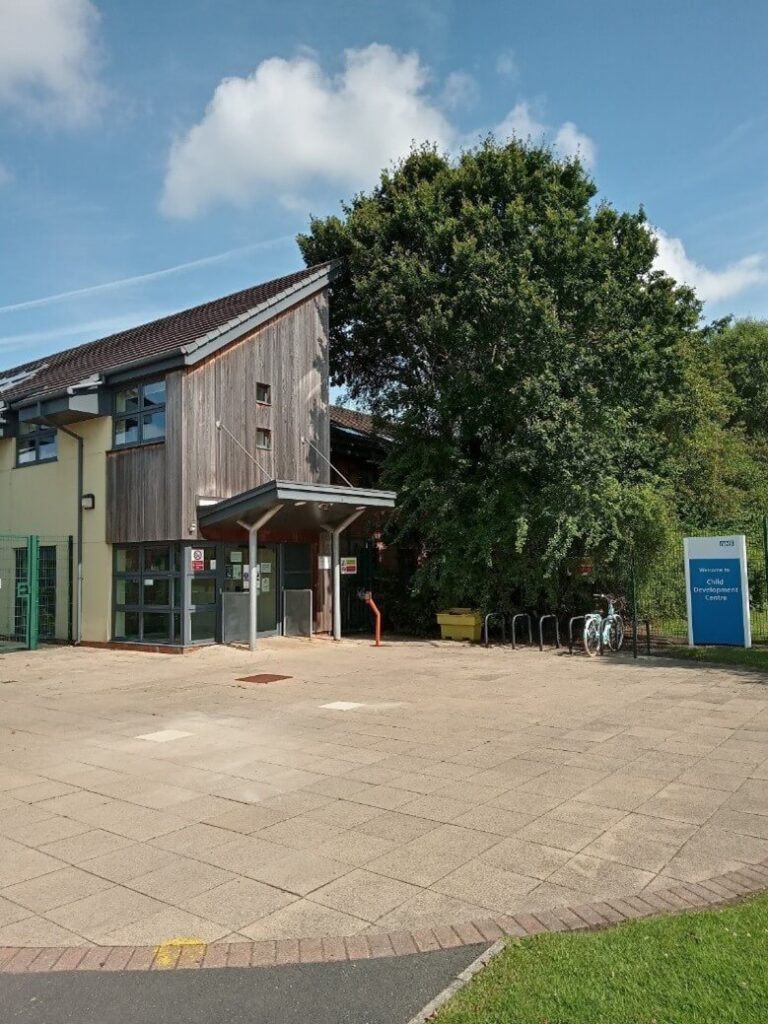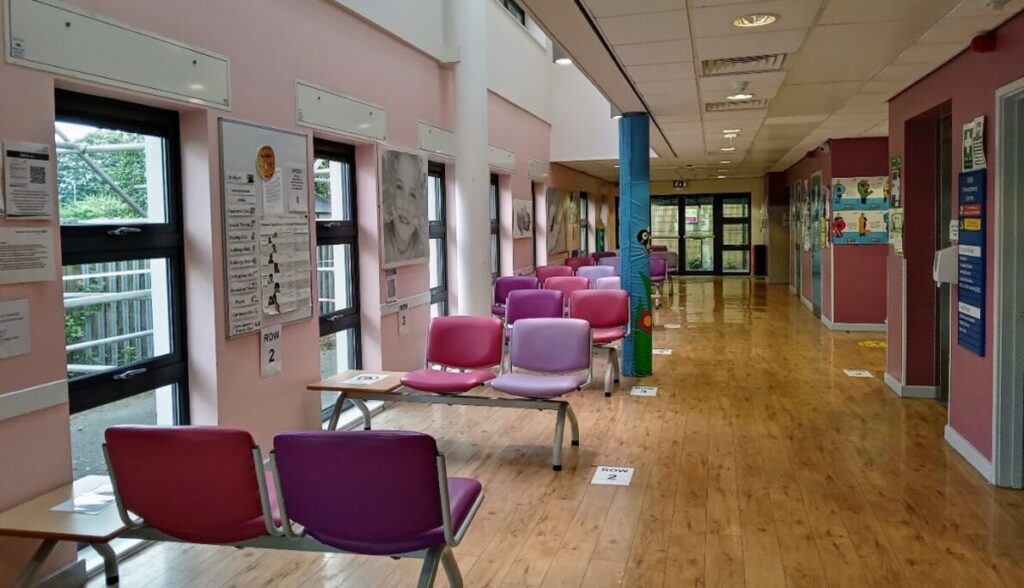Who is involved in the assessment?
In order to make an accurate assessment of a child, we are likely to need the opinion of a number of different professionals. This means that you may be invited to more than one appointment, and this can naturally take a little time.
The specialists involved in the assessment process have a range of expertise to meet your child’s individual needs.
This may include one or more of the following staff:
- A community paediatrician
- A speech & language therapist
- An audiologist
- An occupational therapist
- A physiotherapist
- An orthoptist.
If a neurodevelopmental diagnosis is made, a referral will be made to the Specialist Nursing Team.
Speech and Language Therapy
During the assessment process, a child might be referred for an assessment with our colleagues in speech and language therapy. You may feel this isn’t necessary for your child or young person, especially if you have never felt that they have difficulties with language or speech.
However, the speech and language therapist will be able to give us very important information about a child’s social communication, as well as their attention and listening skills, so if we have asked for this, we will not be able to complete our assessment without it.
It is therefore vital that you opt in to this service and attend any appointments that are offered.
QB tests
If your child is being assessed for ADHD, the assessment pathway team will refer your child on for a QB test.
This assessment is done by Specialist Nursing Team at the Child Development Centre and is usually completed early on in your child’s assessment journey.
Once it is completed there will be a wait for an appointment with the paediatrics team to interpret the results of the test and provide you with feedback.
The QB testing team/neurodevelopment assessment team are unable to give you results of this assessment so please avoid calling to request this.
Additional learning needs
In some cases, a child’s school might also have referred them to see an educational psychologist from the local council. In these cases, we will ask the educational psychologist for their opinion when we discuss the results of our assessment as a team.
What does the assessment journey look like?
There are various stages to the Neurodevelopmental Assessment Pathway. Not all children will go through all of the stages to reach an outcome. Various services will contribute to the assessment.
Once accepted onto the pathway, we will start to gather information in the form of questionnaires and reports.
Your child may be invited for a Speech and Language, Social Communication Assessment if being assessed for Autism (ASD), and a QB Test if being assessed for ADHD.
Your assessment appointments may take place in clinic, school/nursery, or your home.
The Multidisciplinary Team meeting (MDT) for Autism (ASD), will be held only when all of the relevant information has been collected. This is where the outcome of assessment is discussed and agreed.
The outcome of an Autism (ASD) assessment will be fed back after the MDT meeting via a written report.
For ADHD assessments, the information will be analysed by a Community Paediatrician rather than in a Multidisciplinary team meeting, and this will be fed back to you during a face to face or telephone appointment.
When we are ready to tell you about the assessment results, you will usually be given the choice of a face-to-face appointment, or receiving an assessment report in the post.
What else can you do while you are waiting?
Understandably, parents and carers can be keen to know if there is an underlying reason for a child’s difficulties, so that they can get the right help.
However, practical help and support is available in the Warrington area during the wait for assessment by visiting our useful links page.
Assessment outcomes
Our focus is always to identify strengths and difficulties of the child, so that they can get the right help.
Sometimes, the outcome of assessment will be that we are able to give a diagnosis of a neurodevelopmental condition such as ADHD or autism.
However, sometimes a child’s difficulties may not follow the pattern of these conditions, in which case we may not be able to give a specific name or diagnosis, but we can still usually signpost parents and carers to appropriate further help and support.
What will happen after the assessment?
When we are ready to tell you about the assessment results, you will usually be given the choice of a face-to-face appointment, or receiving an assessment report in the post.
If you choose the face-to-face appointment, you will still get the assessment report, but there will be a wait until we can offer this appointment. The majority of parents prefer to receive a report because they want to know the assessment outcome as soon as possible. You should choose whichever you think is best for you.
Sometimes, the doctor might call you in for an appointment if they would like further discussion with you at the end of the assessment process, for example, if they would like to discuss medication.
Once a decision is made, your child’s involvement with the neurodevelopmental assessment pathway is finished and you will be given information about the most useful support services available. In many cases, children are discharged from the pathway at this point, because their assessment is complete.
What if you don’t agree with the outcome?
Sometimes, parents and carers might not agree with the results of assessment. Following a full assessment, we do not accept re-referrals to our service until two years after the child’s last assessment, or unless we receive significant new information that could have affected the results.
In some cases, we may be asked to review assessment outcomes this is a review of the existing assessment information rather than the beginning of a brand new assessment process.
Visit the service pages:
- Children’s Audiology
- Children’s Community Nursing Team
- Children’s Community Paediatric Medical Services (Doctors & Consultants)
- Children’s Occupational Therapy
- Children’s Physiotherapy
- Warrington children’s specialist nursing team
- Children’s Speech & Language Therapy Service
Where we work – The Pebbles Child Development Centre
We are next to St Stephens School, on the site of Sandy Lane Children’s Centre, parking is available on site.
The nearest bus stops are at St Stephens Church or Cleveland Road, which is on the numbers 20 & 21 bus route.
Child Development Centre

Child Development Centre reception area

